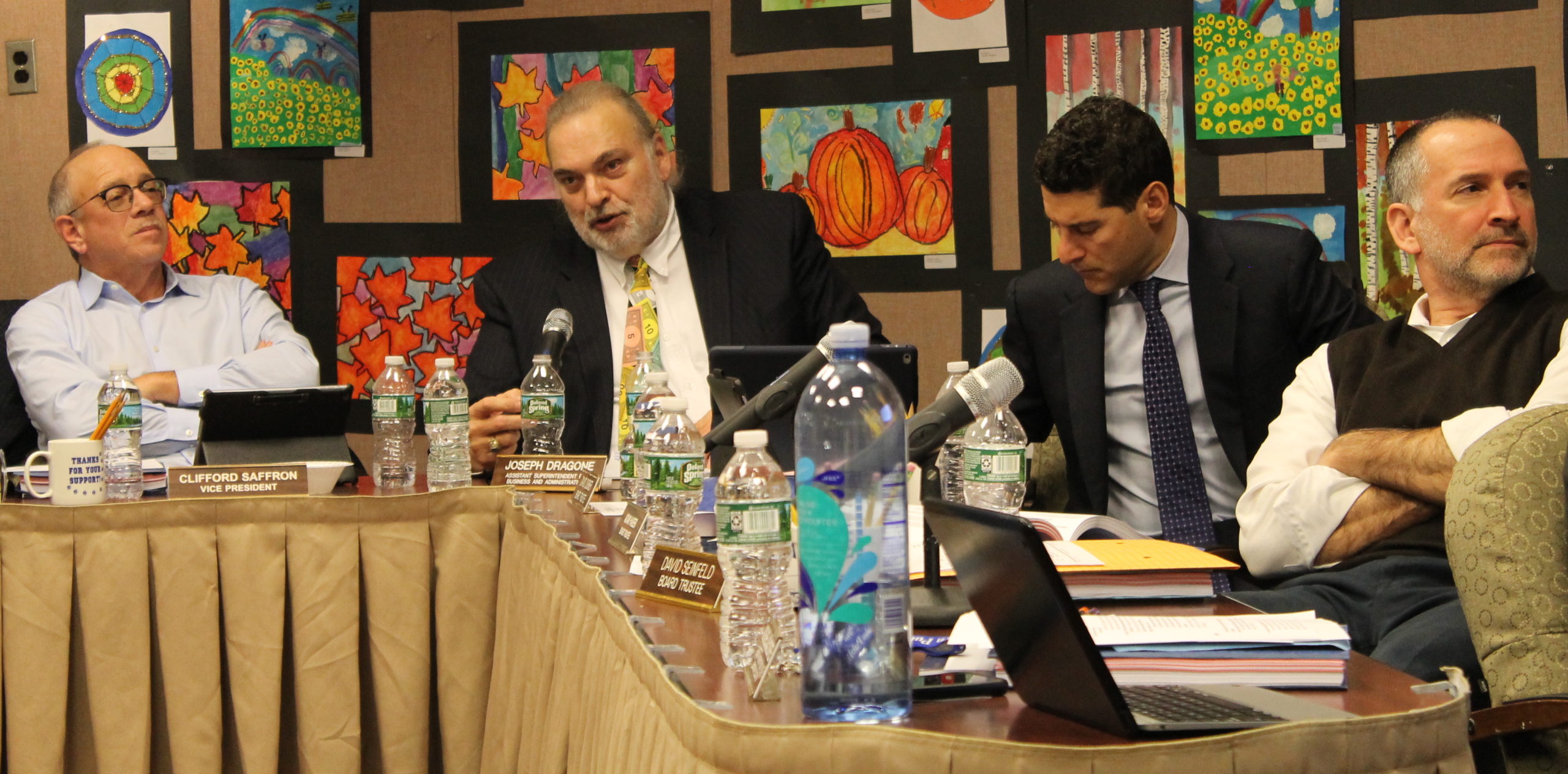The majority of North Shore school districts will take advantage of a higher allowable property tax levy, early budget presentations suggest, with only one North Shore school district increasing its tax levy less than 2 percent.
Under the state tax cap, first passed in 2011, districts generally cannot increase their property tax levies by more than 2 percent or the rate of inflation, according to the state comptroller’s office. But, school districts and municipalities can levy more for “certain excludable expenditures” or override the levy limit if necessary.
None of the schools appeared likely to breach their budget caps, which are each calculated through a state equation taking the prior year’s tax levy, tax base growth factor, payments in lieu of taxes, deductible expenditures and other factors into account.
Currently the tax levies are in flux because PILOT calculations are still being calculated, according to some school budget presentations and assistant superintendents for business, but initial estimates had to be reported to the state comptroller’s office by March 1.
The Great Neck Public Schools currently expect to have a 2.47 percent property tax levy increase, with the maximum allowed right now calculated at 2.85 percent, translating to a boost of $4.9 million from $198.56 million to $203.46 million.
John Powell, the assistant superintendent for business at the Great Neck Public Schools, described the increased tax levy as a “double edged sword” both for his school district and North Shore schools in general.
“The increased tax authority helps to balance the budget, but it’s also painful to the resident taxpayer and the business owner,” Powell said Tuesday evening. “So that’s one of the reasons we didn’t go to the maximum.”
Powell added that in light of recent security concerns raised by parents, his district’s budget and levy could possibly undergo changes in the coming weeks.
Herricks schools calculated a 2.55 percent tax levy increase in their budget presentation, with school officials noting the average increase in recent years – including this year – has averaged about 1.44 percent.
“Herricks has established efficient, cost-effective operations,” Michael Ganci, a spokesman for the school district, said via email. “When creating our draft budget, we always try to balance the needs of our students with strong fiscal responsibility and respect for our taxpayers.”
Roslyn schools projected a 2.42 percent tax levy increase, which will help pay for more than $600,000 worth of planned security improvements in wake of the mass shooting at Marjory Stoneman Douglas High School in Parkland, Florida.
According to its last budget presentation, the East Williston schools expect a 3.06 percent increase in the tax levy from $54.57 million to $59.83 million.
Port Washington, as of Feb. 27, calculated a 2.85 percent tax levy increase – or a boost of $3.78 million – with PILOT payments listed as an “unknown variable.”
Sewanhaka schools calculated the lowest increase in terms of percentage out of all the school districts on the North Shore, with a currently projected 0.99 percent tax levy increase from $142.75 million to $144.16 million.
New Hyde Park-Garden City Park school district residents could expect a 2.92 percent rise from $29.97 million to $30.84 million, the Mineola schools a 2.12 increase from $79.44 million to $81.12 million, and Manhasset schools a 2.99 percent increase from $83.908 million to $86.42 million, according to numbers calculated by Newsday.



